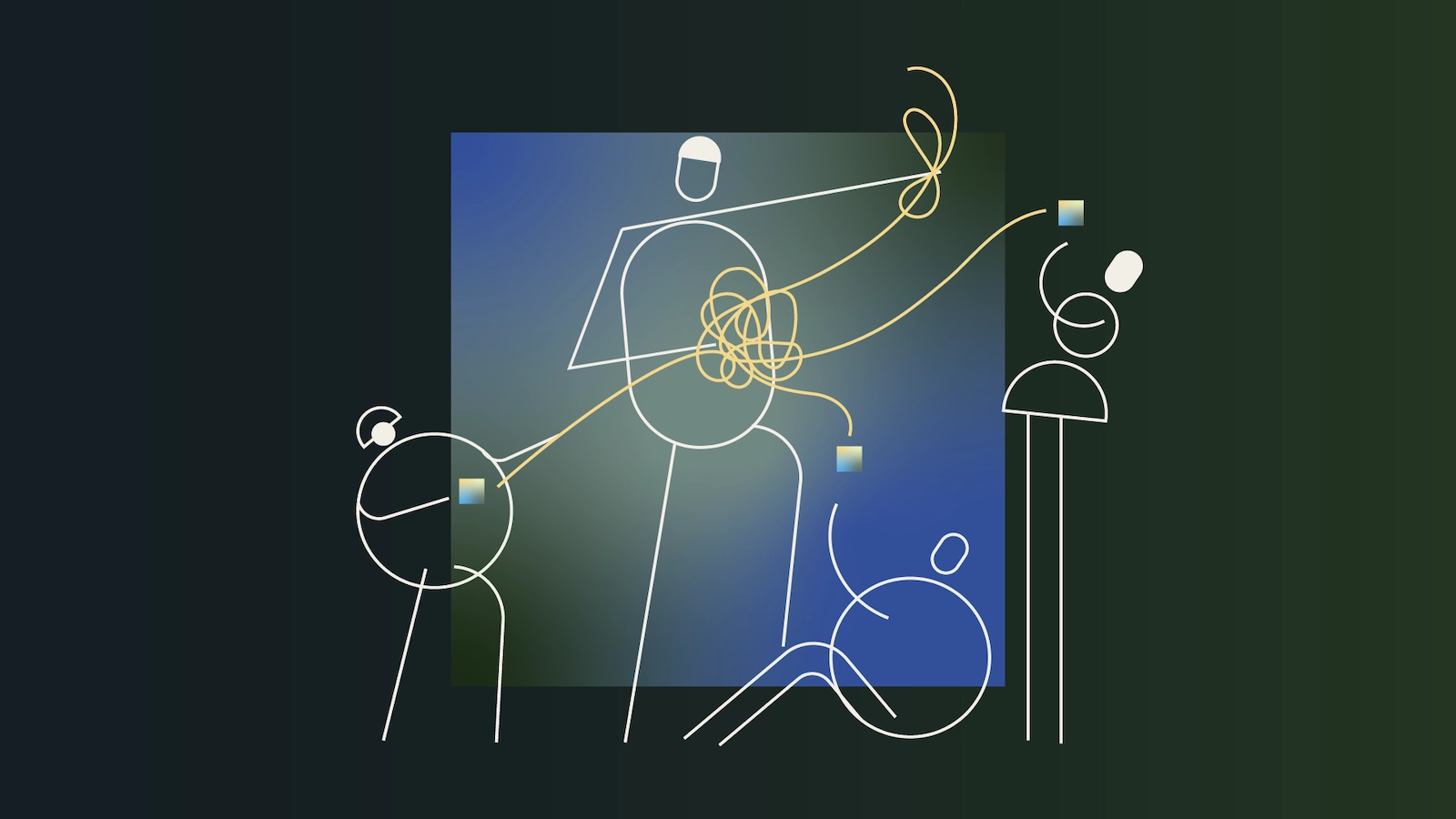The Perils of Being a Natural Leader
Why the same drive that propels us into leadership can also push us toward burnout

“Leadership is the art of getting people to do what you want them to do because they want to do it.” - Dwight D. Eisenhower
When a group gets together and someone is asked to step up and lead, most people’s hands stay stubbornly down by their sides. Not everyone wants to be in charge of things.
But every now and then, someone does raise their hand. They’re willing to put their head above the parapet. And that willingness, in itself, is a signal – it suggests a natural capacity for leadership.
Why wanting to lead matters
I’ve coached hundreds of “high-potential” women over the years, many of them senior leaders. And one thing that strikes me is how unusual this willingness is. Just wanting to be a manager, wanting to be a leader, wanting to step into authority, already sets you apart.
This is fantastic news if you have the ambition to progress in your career. That desire alone is a great starting point.
But as with every trait, there’s a catch. The very factors that allow us to take control can also be our biggest obstacles.
The double edge of control
“For most people, the need to control is driven by a need to feel safe.”
Natural leadership is a rare and valuable trait. Yet, like any other trait, it has both a strength and a shadow side.
From years of working with leaders, I’ve noticed one shadow that surfaces again and again: the fear of losing control.
Why is control so central? Because, in psychological terms, control and safety are almost synonymous. We control things in order to make them safe for us – whether it’s a steering wheel, a muzzled dog, or a work team. –
For many, the roots of this need to control stretch back into childhood. When we suffer neglect or abandonment, learning to take control of the situation can be the only way to create psychological safety.
Childhood as a training ground
I recognise this personally. And I’ve worked with many clients who, in some form or another, had similar experiences.
In one sense, it’s a brilliant adaptation. If we can’t rely on others to look after us, learning to look after ourselves is a fantastic and necessary survival strategy. Over time, it can turn into a strength: an ability to step in, steady the ship, and take responsibility. That’s exactly the kind of skill that helps people ascend an organisational hierarchy.
But adaptation always comes at a cost.
The same need to control that fuels progression can also quietly undermine wellbeing – and block the next stage of leadership growth.
Ellen’s story
An example that comes to mind is a client I worked with several years ago. Let’s call her Ellen.
Ellen was a CEO in the banking industry. She came to me initially because she was struggling with a marriage breakdown. She was also close to burnout and finding it almost impossible to delegate at work.
She had already received coaching around “delegation skills.” But nothing changed. The tips and techniques all felt obvious. None of them reached the root.
As we worked together, Ellen told me about her childhood in the leafy suburbs: an absent father, a depressed mother. By the age of ten, she was looking after not only herself, but also her mum on the days when drinking left her incapacitated. That enormous and inappropriate responsibility felt normal to her – it was all she knew.
And in many ways, she had alchemised it into strength. Her career was built on her gift for bringing safety to chaotic environments. She specialised in high-stress, high-complexity areas of financial services, where her ability to navigate stormy waters was enormously valuable. Those were the exact skills she had first learned as a child.
But the need to control had a shadow. It meant she took on too much work. It meant she struggled to let others step in. And over time, that habit became a threat to her wellbeing.
The brilliance – and the cost
“How brilliant!” is one perspective on Ellen’s story. It shows how difficult childhood experiences can sometimes be transmuted into extraordinary strengths.
But, as ever, there was a shadow side.
In her personal life, Ellen had had four significant relationships. In each, she partnered with women who also had difficult starts in life. At first, they loved the sense of safety Ellen provided. But after a few years, as their own confidence grew, they began to resent her for being “controlling.”
At work, the feedback was similar. She was seen as too “down in the weeds,” with a habit of micromanaging. Her inability to release control meant she carried too much herself – and it was driving her toward burnout.
A pattern with many variations
Ellen’s story may not be your story.
Not everyone “benefits” from childhood adversity. During my seven years as a Samaritan, I spoke to thousands of people whose difficult starts in life brought only pain, with no upsides.
And equally, not every difficult childhood ends in tragedy. The survival adaptations we form often make us who we are today – sometimes at the very root of our success.
Not everyone who has a difficult childhood develops a need to control. In my own case, when my relatively patriarchal father died suddenly at the age of 10, my non-maternal mother became a depressed, withdrawn shell. That didn’t give me a hunger to control others (I’ve never had much appetite for senior leadership), but it did make me fiercely independent and self-sufficient.
The common thread is this: early experiences shape us. But they shape us in different ways.
Beyond techniques
When Ellen came to me, she already knew her behaviours were problematic. She knew her situation wasn’t sustainable.
What she didn’t know was why none of the advice she’d been given seemed to help. The truth was stark: no amount of “delegation techniques” could touch the belief at her unconscious core – that if she let go of control, her and her mum would die.
And that’s why the journey of leadership development is never just about surface skills.
When our behaviours are driven by deep-seated beliefs, there are no quick fixes.
The task instead is a lifelong one: building self-awareness. Developing our understanding of these patterns. Learning to see when they serve us and when they sabotage us. And only then – paradoxically – gaining more genuine control.
SPEAKERS
“Leadership is the art of getting people to do what you want them to do because they want to do it.” - Dwight D. Eisenhower
When a group gets together and someone is asked to step up and lead, most people’s hands stay stubbornly down by their sides. Not everyone wants to be in charge of things.
But every now and then, someone does raise their hand. They’re willing to put their head above the parapet. And that willingness, in itself, is a signal – it suggests a natural capacity for leadership.
Why wanting to lead matters
I’ve coached hundreds of “high-potential” women over the years, many of them senior leaders. And one thing that strikes me is how unusual this willingness is. Just wanting to be a manager, wanting to be a leader, wanting to step into authority, already sets you apart.
This is fantastic news if you have the ambition to progress in your career. That desire alone is a great starting point.
But as with every trait, there’s a catch. The very factors that allow us to take control can also be our biggest obstacles.
The double edge of control
“For most people, the need to control is driven by a need to feel safe.”
Natural leadership is a rare and valuable trait. Yet, like any other trait, it has both a strength and a shadow side.
From years of working with leaders, I’ve noticed one shadow that surfaces again and again: the fear of losing control.
Why is control so central? Because, in psychological terms, control and safety are almost synonymous. We control things in order to make them safe for us – whether it’s a steering wheel, a muzzled dog, or a work team. –
For many, the roots of this need to control stretch back into childhood. When we suffer neglect or abandonment, learning to take control of the situation can be the only way to create psychological safety.
Childhood as a training ground
I recognise this personally. And I’ve worked with many clients who, in some form or another, had similar experiences.
In one sense, it’s a brilliant adaptation. If we can’t rely on others to look after us, learning to look after ourselves is a fantastic and necessary survival strategy. Over time, it can turn into a strength: an ability to step in, steady the ship, and take responsibility. That’s exactly the kind of skill that helps people ascend an organisational hierarchy.
But adaptation always comes at a cost.
The same need to control that fuels progression can also quietly undermine wellbeing – and block the next stage of leadership growth.
Ellen’s story
An example that comes to mind is a client I worked with several years ago. Let’s call her Ellen.
Ellen was a CEO in the banking industry. She came to me initially because she was struggling with a marriage breakdown. She was also close to burnout and finding it almost impossible to delegate at work.
She had already received coaching around “delegation skills.” But nothing changed. The tips and techniques all felt obvious. None of them reached the root.
As we worked together, Ellen told me about her childhood in the leafy suburbs: an absent father, a depressed mother. By the age of ten, she was looking after not only herself, but also her mum on the days when drinking left her incapacitated. That enormous and inappropriate responsibility felt normal to her – it was all she knew.
And in many ways, she had alchemised it into strength. Her career was built on her gift for bringing safety to chaotic environments. She specialised in high-stress, high-complexity areas of financial services, where her ability to navigate stormy waters was enormously valuable. Those were the exact skills she had first learned as a child.
But the need to control had a shadow. It meant she took on too much work. It meant she struggled to let others step in. And over time, that habit became a threat to her wellbeing.
The brilliance – and the cost
“How brilliant!” is one perspective on Ellen’s story. It shows how difficult childhood experiences can sometimes be transmuted into extraordinary strengths.
But, as ever, there was a shadow side.
In her personal life, Ellen had had four significant relationships. In each, she partnered with women who also had difficult starts in life. At first, they loved the sense of safety Ellen provided. But after a few years, as their own confidence grew, they began to resent her for being “controlling.”
At work, the feedback was similar. She was seen as too “down in the weeds,” with a habit of micromanaging. Her inability to release control meant she carried too much herself – and it was driving her toward burnout.
A pattern with many variations
Ellen’s story may not be your story.
Not everyone “benefits” from childhood adversity. During my seven years as a Samaritan, I spoke to thousands of people whose difficult starts in life brought only pain, with no upsides.
And equally, not every difficult childhood ends in tragedy. The survival adaptations we form often make us who we are today – sometimes at the very root of our success.
Not everyone who has a difficult childhood develops a need to control. In my own case, when my relatively patriarchal father died suddenly at the age of 10, my non-maternal mother became a depressed, withdrawn shell. That didn’t give me a hunger to control others (I’ve never had much appetite for senior leadership), but it did make me fiercely independent and self-sufficient.
The common thread is this: early experiences shape us. But they shape us in different ways.
Beyond techniques
When Ellen came to me, she already knew her behaviours were problematic. She knew her situation wasn’t sustainable.
What she didn’t know was why none of the advice she’d been given seemed to help. The truth was stark: no amount of “delegation techniques” could touch the belief at her unconscious core – that if she let go of control, her and her mum would die.
And that’s why the journey of leadership development is never just about surface skills.
When our behaviours are driven by deep-seated beliefs, there are no quick fixes.
The task instead is a lifelong one: building self-awareness. Developing our understanding of these patterns. Learning to see when they serve us and when they sabotage us. And only then – paradoxically – gaining more genuine control.




.png)